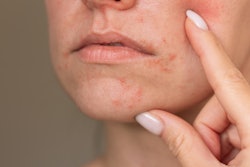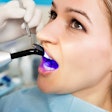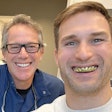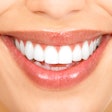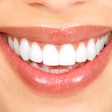
Teeth stains are commonly associated with poor oral hygiene and habits like smoking tobacco. Plaque accumulation can lead to the yellowing of teeth, while tobacco use often results in dark stains. However, beyond these well-known causes, certain medications can also contribute to tooth discoloration, a factor that dental care professionals should aware of in their practice.
1. Chlorhexidine: One medication frequently encountered in dental settings is chlorhexidine, an antibacterial mouthwash commonly prescribed for gum disease and oral infections. While chlorhexidine is effective in combating oral bacteria, it can have the unintended side effect of causing a brownish discoloration over time. It's important for the dentist or hygienist to reassure patients that the staining caused by chlorhexidine can be easily removed in the dental office and that using the medication as directed is essential to prevent an infection from worsening.
2. Iron: Another medication known for its potential to stain teeth is iron, particularly in liquid formulations. While iron supplements are primarily associated with side effects like a black tongue and dark stools, they can also stain teeth, resulting in a noticeable dark coloration.
3. Tetracycline antibiotics: Among the classes of medications that dentists should be particularly cautious about are tetracycline antibiotics. Drugs like doxycycline, minocycline, and tetracycline are commonly prescribed to treat bacterial infections, but they can also cause permanent tooth discoloration. Nursing mothers, expecting mothers, and children (especially younger than 8 years old) should avoid these antibiotics, as their teeth are still developing.
 Dr. Lisa Chan.
Dr. Lisa Chan.
4. Antihistamines: Medications that cause xerostomia are also known to cause discoloration. Reduced saliva flow creates an environment where bacteria and plaque can accumulate more readily, consequently heightening the likelihood of tooth discoloration. Antihistamines such as Benadryl, hydroxyzine, and promethazine are among the many medications that cause xerostomia. Dentists and hygienists should consider increasing the frequency of patients' exam appointments due to the potential increase in caries.
5. Rifampin: This medication is indicated for latent or active tuberculosis treatment. A common side effect of rifampin is orange-red discoloration of body secretions (sputum, urine, sweat, tears) and teeth. It can even stain contact lenses and clothing. Dental care professionals may recommend that the patient come in for polishing in between prophy appointments while they are taking this medication.
The discoloration caused by these medications is not merely cosmetic but can have a significant impact on a person's self-esteem and confidence. Therefore, it's crucial that dentists and dental team members inquire about their patients' medication history and educate them about any potential side effects, including tooth discoloration.
Furthermore, those within the dental practice can advocate for preventive measures, such as scheduling regular dental cleanings; encouraging patients to maintain daily oral hygiene practices, including brushing and flossing; advising against consuming certain foods and beverages that may worsen staining; promoting smoking cessation; and exploring alternative medications when possible. By being proactive and informed about medication-related tooth discoloration, dental professionals can better serve their patients' oral health needs and enhance their overall satisfaction with dental care.
Teresa Mendoza, PharmD, received her degree in biochemistry and a minor in Chicano/a studies from the University of California, Los Angeles (UCLA). She earned her Doctor of Pharmacy degree from the University of California, San Francisco School of Pharmacy. Mendoza has held many executive positions involving service to the community and higher education advocacy. She is a contributor to MedAssent DDS as a medical/pharmaceutical communications specialist, where she leads the blog, white paper, and continuing education content.
Dr. Lisa Chan has devoted her career to promoting equity in care in both dentistry and her community. She brings over 35 years of diverse experience in dentistry to her role. Chan received her Doctor of Dental Surgery degree from the University of Southern California Herman Ostrow School of Dentistry. Her background includes significant positions such as a hospital dentist at Kaiser Permanente, a private practice dentist in Los Angeles, and a consultant for the California State Dental Board. Chan co-founded MedAssent DDS with the mission of elevating patient safety through integrated care.
The comments and observations expressed herein do not necessarily reflect the opinions of DrBicuspid.com, nor should they be construed as an endorsement or admonishment of any particular idea, vendor, or organization.




